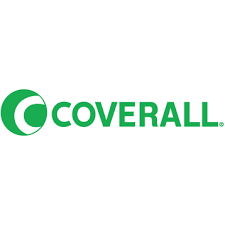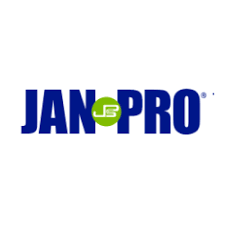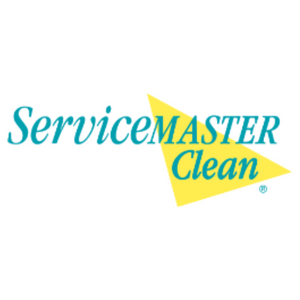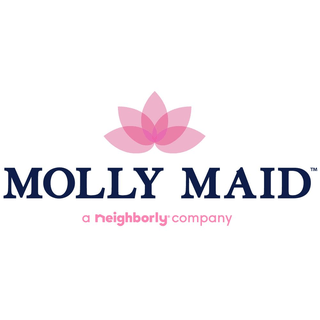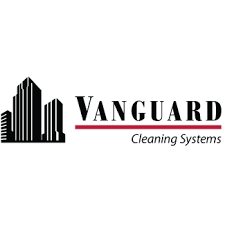Coverall Franchise in 2025: Costs, Fee & FDD
Learn if Coverall aligns with your investment goals. Explore essential insights, growth trends, earnings potential, and the pros and cons of running a commercial cleaning franchise. See below our deep dive into the details of Coverall’s franchise investment potential.

Table of Contents:
Coverall is a well-established franchise in the commercial cleaning industry, founded in 1985. The brand was built on the mission to provide superior cleaning services to businesses while prioritizing sustainability and health. Over the years, Coverall has grown into a recognized leader in the field, known for its commitment to innovation and excellence in commercial cleaning. The franchise’s prominence in the industry comes from its ability to adapt to the evolving needs of businesses while offering franchisees the chance to join a proven system in a high-demand market.
At the heart of Coverall’s offerings is a comprehensive range of commercial cleaning services, including routine janitorial services, floor and carpet care, and specialized cleaning for healthcare facilities. The brand also offers ancillary services like disinfecting and sanitizing treatments, which have become increasingly relevant. Coverall’s primary customer base consists of businesses across various sectors, including offices, healthcare facilities, educational institutions, and industrial spaces. This diversity ensures a stable and broad market reach, catering to the growing need for cleanliness and hygiene in today’s world.
In terms of scale, Coverall operates in over 90 markets across the U.S. and has expanded globally with franchise locations in several countries, including Canada and Japan. The franchise serves thousands of customers daily, ranging from small businesses to large corporations. With more than 8,000 franchise owners, Coverall’s system continues to grow, making it one of the most accessible and scalable franchises in the commercial cleaning sector.
Coverall offers a comprehensive support system for its franchisees, which includes an initial training program covering everything from cleaning techniques to business management. Additionally, franchisees receive ongoing support in the form of marketing, customer acquisition, and operational guidance. Coverall’s robust infrastructure ensures that franchisees have the tools they need to succeed, along with access to innovative cleaning technologies and eco-friendly products, setting the franchise apart in the competitive commercial cleaning industry.
Coverall Franchise Insights
- Coverall has an impressive 5,654 U.S. franchised units, showcasing its extensive reach and dominance in the commercial cleaning industry.
- Coverall has been offering franchises since 1989, giving it a strong history and established reputation in the industry.
- With a focus on health-based cleaning systems, Coverall has positioned itself as a leader in disinfecting and sanitizing services, a segment that has seen massive growth due to increased hygiene awareness.
Coverall Franchise Key indicators
Growth YOY (%)
-4%
vs industry 4%
Total U.S. Franchised Units
5,654
3-Year Failure Rate
52%
vs industry 13%
Sales-to-Investment ratio
1.5:1
How much does it cost to open a Coverall franchise?
Understanding the potential investment size and capital requirements is crucial when considering opening a Coverall franchise. These financial commitments, including initial franchise fees, equipment costs, and ongoing operational expenses, impact the feasibility and profitability of the venture. Thoroughly evaluating these factors ensures that potential franchisees are prepared for the financial responsibilities and can make informed decisions about their ability to sustain and grow the business, ultimately contributing to long-term success.
Min & Max Investment
Opening a Coverall franchise involves several key costs, which are outlined in Item 7 of the Franchise Disclosure Document (FDD). You can see a breakdown of the costs to open a Coverall below from the most recent Item 7 below:
Type of Expenditure
Minimum Investment
Maximum Investment
Initial Franchise Fee
$15,570
$40,320
Initial Equipment and Supply Package
$990
$2,550
Corporate Filings, Banking, Business License, and Permits
$175
$500
Office Supplies & Equipment
$0
$120
Apparel
$15
$150
Misc. Pre-Opening Costs
$0
$300
Additional Funds (four months)
$314
$3,500
General Liability Insurance
$0
$1,479.84
Franchise Owner On The Job Accident Insurance
$0
$960
Non-Conviction Janitorial Fidelity Bond or Alternative Bond
$23.80
$47.80
Automobile Insurance
$500
$5,000
Workers' Compensation Insurance
$104
$5,680
Vehicle
$225
$2,300
Total Estimated Initial Investment
$17,917
$62,908
Item 7 in the Franchise Disclosure Document (FDD) is the “Estimated Initial Investment” section. It outlines the total costs a franchisee can expect to incur when starting a franchise, including the initial franchise fee, equipment, inventory, real estate, and other startup expenses. This section is crucial because it provides potential franchisees with a detailed understanding of the financial commitment required, helping them assess affordability and plan their investment strategy effectively.
Required Capital
To open a Coverall franchise, the required capital involves both the initial investment costs and a net worth requirement set by Coverall. Let’s take a closer look below:
- Initial Investment As shown above, the total estimated initial investment ranges from $17,917 to $62,908. This includes all the startup costs such as the franchise fee, real estate, construction, equipment, initial inventory, and additional funds for initial operating expenses. Assuming that you will finance your franchise investment, you should plan to have 20% of the total investment amount in the form of equity (cash) for the investment.
- Liquid Assets While specific figures aren’t provided, franchises in this industry generally require at least $10,000 to $20,000 in liquid assets. This ensures you have the necessary cash flow for immediate expenses post-launch.
- Net Worth A safe estimate would place the required net worth around $50,000 to $100,000, though this can vary depending on the market and franchisor’s expectations. For a franchise like Coverall, with a lower initial investment, the net worth requirement may be on the lower side of this range.
How much does a Coverall franchise owner make?
Calculating the salary of a Coverall franchise owner involves analyzing gross sales to determine total revenue, assessing operational efficiency to understand profit margins, and accounting for franchisor fees and additional expenses such as rent, utilities, and payroll. Effective management of these factors can significantly impact the profitability and financial success of a Coverall franchise owner. This comprehensive financial analysis helps estimate net profits, from which the owner’s salary can be derived. A clear understanding of these factors ensures accurate salary projections and financial planning for sustainable business operations.
Coverall Revenue & Gross Sales
While the exact median gross sales figure for Coverall is not available, it’s important to note that the franchise has a well-established reputation in the commercial cleaning industry. Coverall operates in a high-demand market, providing essential services to businesses of all sizes. Franchisees typically benefit from consistent customer demand, particularly in sectors like healthcare, education, and corporate offices. While gross sales figures can vary depending on location and client base, Coverall’s proven business model and comprehensive support system give franchisees a solid foundation for financial success.
Which key factors impact the average revenue performance of Coverall franchisees?
Several factors likely contributed to the performance of U.S. franchisee median gross sales for Coverall over the past year. First, the increased demand for commercial cleaning and sanitization services, particularly due to heightened hygiene concerns post-pandemic, has driven consistent business across sectors. Additionally, businesses in healthcare, education, and corporate offices continue to rely on professional cleaning services, ensuring a steady client base for franchisees. Economic factors such as inflation may have impacted operational costs, but the essential nature of the services Coverall provides likely helped maintain or even increase gross sales. Franchisees with diverse service offerings, like specialized disinfection services, may have seen stronger performance compared to the prior year due to their adaptability in meeting evolving market demands.
Coverall Franchise Operational Costs
When opening a Coverall franchise, the key ongoing operational costs you should consider primarily revolve around service delivery and daily business operations. These include:
- Labor costs As a commercial cleaning business, the majority of your expenses will likely go toward paying cleaning staff. This will depend on the number of clients and the size of your team.
- Cleaning supplies and equipment You’ll need to regularly restock cleaning solutions, tools, and equipment like vacuums or specialized disinfection tools to maintain service quality.
- Transportation costs Since services are delivered on-site, fuel, vehicle maintenance, and potentially leasing or purchasing company vehicles will be regular expenses.
- Insurance Maintaining liability and worker’s compensation insurance will be essential for both protecting your business and meeting legal requirements.
- Technology and software Depending on your setup, you may invest in software for managing scheduling, invoicing, and client communication, which could carry monthly or annual fees.
These ongoing costs will vary based on the scale of your business and the specific services you offer.
Coverall Franchise Fees
When opening a Coverall franchise, it’s important to consider the ongoing fees associated with operating under the brand. These fees are typically based on your monthly gross sales and are vital to maintaining support and resources from the franchisor. Here are some key fees to be aware of:
- Royalty Fee Coverall charges a 5% royalty fee on the gross dollar volume, which is the total amount billed to customers for cleaning services. This fee is deducted monthly on the last calendar day of the next month.
- Support Fee In addition to the royalty fee, Coverall requires a 10% support fee based on the gross dollar volume. This fee covers business and support services, including promotional assistance, billing, collection, and customer relations support.
- Additional Fees There might be other fees related to equipment, technology, or specific franchise territory requirements, depending on your location and market needs.
These fees are essential to consider as part of your overall operational budget, ensuring you’re prepared to maintain your franchise with Coverall’s ongoing support.
Coverall Franchise Earnings
While specific earnings for Coverall franchisees based on median gross sales aren’t publicly available, an estimate can be made by considering factors common to the commercial cleaning industry. Owner-operators typically benefit from lower operational costs, as they manage day-to-day operations directly and may take on cleaning tasks themselves. This hands-on approach can lead to higher profit margins compared to absentee ownership.
Given the essential nature of Coverall’s services, consistent demand across sectors like healthcare, education, and corporate clients could offer solid revenue opportunities for owner-operators. However, earnings will vary significantly based on location, client base, and the ability to scale the business.
How to Open a Coverall Franchise
The process to become a Coverall franchisee typically involves several key steps, starting with the initial inquiry and culminating in the launch of your business operations:
- Initial Inquiry You or your franchise specialist submits an initial inquiry basic information about your interest and background. You should also conduct thorough research on the franchise, including seeing all of the information available on the Vetted Biz franchise intelligence platform, including access to the most recent Franchise Disclosure Document (FDD).
- Franchise Application After the initial inquiry, you’ll submit a formal franchise application, which includes financial details and an overview of your business background. This helps Coverall assess your eligibility as a potential franchisee.
- Meet with the Franchise Team During this period, you’ll likely have the chance to speak with current franchisees or Coverall’s support team to ask questions, learn more about the business, and discuss financing options.
- Training Once you sign the franchise agreement, you’ll attend Coverall’s comprehensive training program. This training covers the cleaning systems, operational procedures, and business management skills you’ll need to run your franchise successfully.
- Business Setup After training, you’ll begin the process of setting up your business, including obtaining the necessary equipment, securing clients, and establishing a marketing plan with the support of Coverall.
- Launch Finally, you’ll be ready to start operations. With Coverall’s support, you’ll begin servicing clients, managing your team, and growing your business with their ongoing assistance.
Pros & Cons
Pros
Low Initial Investment: With a relatively low startup cost compared to other franchises, Coverall is accessible for many aspiring business owners.
High Demand: The commercial cleaning industry is essential, with ongoing demand in sectors like healthcare, education, and corporate offices.
Scalability: The franchise model allows for growth, with opportunities to expand to multiple clients or even manage multiple territories.
Flexible Ownership: You can operate as an owner-operator, potentially increasing profit margins by reducing labor costs.
Cons
Potential Client Turnover: Commercial cleaning contracts may have shorter durations, and client turnover can be high, which may require constant effort to secure new clients or maintain existing ones.
Competitive Industry: The commercial cleaning industry is competitive, with many national and local players, so securing and retaining clients may require significant effort.
Labor-Intensive: Managing a cleaning business can be demanding, especially when it comes to hiring, training, and retaining staff.

